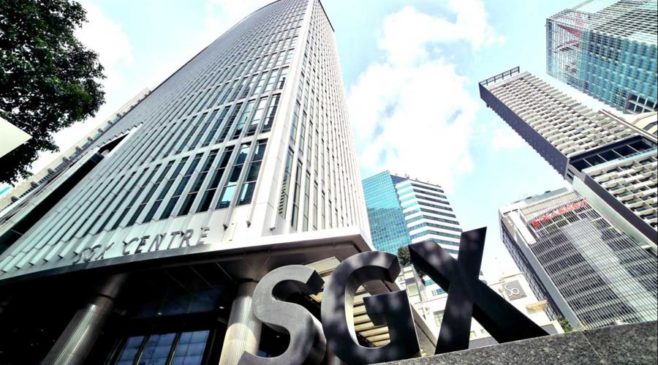Singapore Exchange (SGX) today reported its financial numbers for the first half of the fiscal year 2022 (H1 FY2022). For the reported period, the exchange saw a net profit of S$222 million.
Total revenue for H1 FY2022 came in at S$521.6 million. The revenue from the underlying core businesses of SGX climbed 6% to S$501.0 million. SGX witnessed a decent spike in trading and clearing revenues from equity, currency, and commodity derivatives.
A jump of approximately 20% was reported in the revenue of BidFX and Scientific Beta, the fast-growing subsidiaries of the Singapore Exchange. For the reported period, Adjusted EBITDA touched S$309.6 million. Earnings per share (EPS) came in at 20.7 cents.
“We are making good progress in executing our multi-asset strategy. Our underlying core revenue has grown, with a strong performance in our currencies and commodities, healthy market share and yields for our key equity derivative products, as well as steady growth in our market data and index business. In the last two years, we have made S$1 billion worth of acquisitions and investments to leapfrog our multi-asset strategy and capture the growth opportunities across asset classes and platforms,” Loh Boon Chye, Chief Executive Officer of SGX, commented.
FX ADV
During the first half of the fiscal year 2022, SGX witnessed a sharp rise in foreign exchange average daily volume (FX ADV). The number climbed 46% from US$39 billion to US$57 billion. Throughout the last 12 months, SGX reported a consistent jump in FX activity across its platforms. The exchange recently completed the acquisition of the FX platform MaxxTrader.
“As Asian economies recover, demand for Asia-centric portfolio investment and risk management solutions will rise. China remains high on investors’ radar, which is expected to spur more activity for our range of China-access products. We will continue to broaden our securities and derivatives product shelf, enhance our global connectivity to facilitate new capital flows, and boost our digitalization and sustainability efforts,” Loh Boon Chye added.
Singapore Exchange (SGX) today reported its financial numbers for the first half of the fiscal year 2022 (H1 FY2022). For the reported period, the exchange saw a net profit of S$222 million.
Total revenue for H1 FY2022 came in at S$521.6 million. The revenue from the underlying core businesses of SGX climbed 6% to S$501.0 million. SGX witnessed a decent spike in trading and clearing revenues from equity, currency, and commodity derivatives.
A jump of approximately 20% was reported in the revenue of BidFX and Scientific Beta, the fast-growing subsidiaries of the Singapore Exchange. For the reported period, Adjusted EBITDA touched S$309.6 million. Earnings per share (EPS) came in at 20.7 cents.
“We are making good progress in executing our multi-asset strategy. Our underlying core revenue has grown, with a strong performance in our currencies and commodities, healthy market share and yields for our key equity derivative products, as well as steady growth in our market data and index business. In the last two years, we have made S$1 billion worth of acquisitions and investments to leapfrog our multi-asset strategy and capture the growth opportunities across asset classes and platforms,” Loh Boon Chye, Chief Executive Officer of SGX, commented.
FX ADV
During the first half of the fiscal year 2022, SGX witnessed a sharp rise in foreign exchange average daily volume (FX ADV). The number climbed 46% from US$39 billion to US$57 billion. Throughout the last 12 months, SGX reported a consistent jump in FX activity across its platforms. The exchange recently completed the acquisition of the FX platform MaxxTrader.
“As Asian economies recover, demand for Asia-centric portfolio investment and risk management solutions will rise. China remains high on investors’ radar, which is expected to spur more activity for our range of China-access products. We will continue to broaden our securities and derivatives product shelf, enhance our global connectivity to facilitate new capital flows, and boost our digitalization and sustainability efforts,” Loh Boon Chye added.



